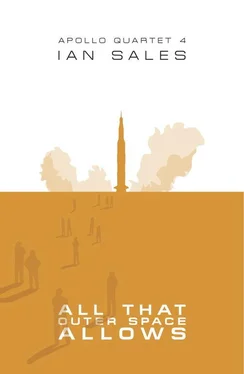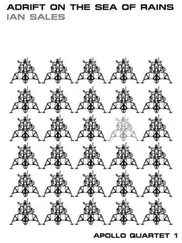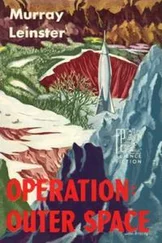This is not strictly true, of course. At this point in the story, it may be 1967 but women are not chattels, although the Equal Pay Act only became law four years before—a chief campaigner for which was, coincidentally, one of the Mercury 13, Janey Hart. It would be foolish to pretend the United States has actual gender equality. Women had not been given the vote until 1920; and whatever freedoms they may have enjoyed during the Second World War were rudely taken from them when the GIs returned home—as illustrated by the appearance of Ginny’s mother in this story in the previous chapter.
Though it may seem the astronaut wives do little but keep house, mother their children and worry about their husbands, many also have other interests, or even part-time jobs—Rene, as mentioned earlier, is a newspaper columnist, and later becomes a radio host and television presenter; some wives are substitute teachers; others are heavily involved in the activities of their local church or community theatre. But some are indeed only wives and mothers, as Lily Koppel writes in her book, The Astronaut Wives Club , about Pat White: “She had dedicated everything to him. She had cooked gourmet meals. She had handled all his correspondence… ‘She just worked at being Ed’s wife,’ said one of the wives, ‘and she was wonderful at it, and that was all…’”
Ginny has years of practice at dreaming up possible futures, but she weeps because Apollo 1 suggests a future she begs providence to keep purely fictional. Walden has always been, and remains still, the brightest star in her map of the galaxy; and she cannot bear the thought of life without him. So she spends days privately weeping for a loss she has not experienced and may never experience; and then she wipes her eyes and fixes her mascara and joins the rest of Togethersville in succouring the new widows.
Later, once the funerals are over and life has returned to what passed previously for normal, although perhaps it is a little more tightly wound, Ginny, who is often inclined to ascribe attributes, either luck or inevitability, to things which do not possess or deserve them, feels the tragedy may blight their new house, might perhaps apply itself to Walden’s career. But she is not a foolish or suggestible woman, if anything she likes to think she sees the world as operating along rational lines, according to fixed physical rules and laws, not all of which have yet to be discovered, a consequence she believes of her choice in literature, of the magazines to which she subscribes, avidly reads and contributes—
Which, sadly, she has not been doing as frequently as she had. Keeping up appearances, showing the other wives she is a reliable member of the community, attending the meetings and parties, dropping by others’ houses, having people drop by hers…
She’s rarely alone, even though Walden is not often at home, he’s either at the Cape all week; or when he’s in Houston, he’s at the Manned Spacecraft Center and when he gets home in the evening his head is too full of orbital mechanics, spacecraft systems and the manuals he has been studying to care about Ginny’s day. It’s a level of disengagement an order of magnitude greater than at Edwards, Walden eats his late dinners in silence, and then spreads all his books and manuals across the kitchen table, or relaxes in front of the Zenith colour television, Space Command 600 remote control loosely held in one hand, to watch the football or a current affairs show.
Perhaps this is just as well. Ginny has been finding it increasingly hard to cope with being an astronaut wife. It has been weeks since she last wore slacks, and her favourite plaid shirt sits folded and unworn in a drawer. The Hermes Baby has only come out of its case a half-dozen or so times since her first meeting of the AWC, and then only to write letters—and she still owes replies to many of her friends.
Since moving to Houston, Ginny has not left the city, she has not been to the Manned Spacecraft Center, she has not seen a rocket or anything related to the space program. Walden has brought lots of paperwork home, and she’s sneaked looks through some of it when he’s not about. But surreptitiously checking out Walden’s training materials—she loves the Apollo spacecraft, their lines, their detail, their immense complexity, all those dials and switches, she wants to know all there is to know, much as she would about a spaceship which appeals to her on the cover of a magazine—but it’s only diagrams and dry text and what she really wants is to climb inside a LM or sit inside a CSM, she’d like to stand beside a Saturn V and actually experience its immensity. But she’s reluctant to display too much interest, Walden has professed on more than one occasion that he much prefers his “new” wife, and although she feels like a robot replica of Virginia Grace Eckhardt more and more of the time, in a town of robot wives which were designed, of course, by and for men—and now she thinks about it, that’s not a bad idea for a story—she nonetheless maintains the façade, the pretence: because everything on the home front must be “copacetic” if her husband is to have a chance at the Moon.
Her “space cadette” days are behind her, or so Walden believes—but he remains, as ever, mostly oblivious.
#
…was not the only writer of the first half of the twentieth century explicitly writing about the female experience, and using science fiction to do so.
The place of Virginia Grace Parker, who was published under the gender neutral name V. G. Parker, in the canon of feminist science fiction has been under debate for more than two decades. She was not a prolific writer, producing only eleven stories in as many years. Her stories were interesting for their general atmosphere of isolation, initially filtered through the experiences of a wife or mother. In this, Parker’s fiction followed the form of “housewife heroine” stories, as defined by Betty Friedan in her landmark work, The Feminine Mystique. Classic examples in science fiction include Judith Merril’s “Only A Mother” and Alice Eleanor’s Jones’s “Created He Them”, both of which are very much products of the Cold War and which explicitly document a housewife’s response to a situation resulting from a nuclear war. Parker, curiously, never based stories on this trope, and it is tempting to speculate the fact she was married to a serving US Air Force officer gave her a different perception on nuclear weapons’ capabilities and likelihood of use.
Parker’s stories fall into three rough periods, each corresponding to changes in circumstances linked to her husband’s career. The early ones were written while Parker lived in Germany. They were often told from the point of view of an alien, and displayed a somewhat pessimistic view of humanity. But once Parker’s husband had been stationed back in the USA, the stories turned more optimistic and more domestic, culminating in “The Spaceships Men Don’t See”. This last story is especially interesting, and not simply because its title eerily presages James Tiptree, Jr.’s 1973 story, “The Women Men Don’t See”.
“The Spaceships Men Don’t See” was published in Galaxy in 1968. The story describes a secret military project to develop a spaceship which is invisible to the enemy. The main character of the story is the wife of an engineer who is working on the project. It is not going well, and as the engineer returns home each evening, his wife can tell that the day has once again been a failure. This distancing from the central novum of the story—the technology required to render the ship invisible is neither explained nor provided with pseudo-scientific scaffolding—is common to much “housewife heroine” science fiction.
Читать дальше












